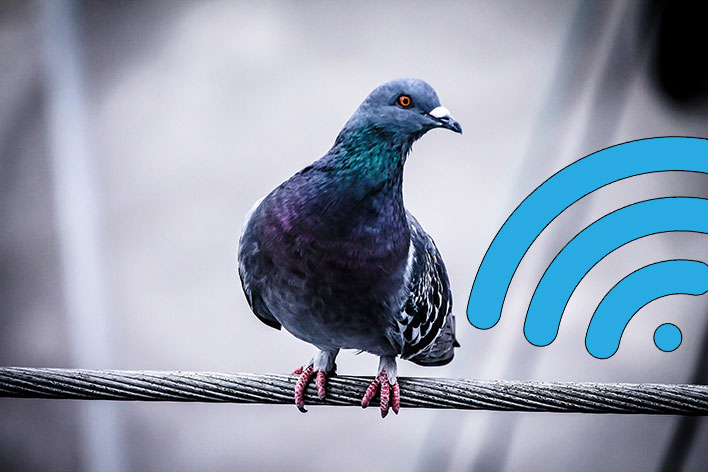SpaceX Starlink Finds Itself Pigeonholed Into This Annoying Satellite Internet Dish Problem

Slow and crummy internet connectivity is for the birds, especially today, when so much depends on fast service (online gaming, streaming movies, looking up whatever random question keeps you awake at night, and so on). Well, guess what? Faster internet connectivity is for the birds too, apparently, but in a more literal sense. Or so that's what some pigeons seem to think.
Speedy connectivity is hard to come by in some rural areas, and not necessarily all the way into the boonies, either. SpaceX is attempting to remedy the situation through Starlink, a satellite internet service that, according to the latest round of speed tests, absolutely smokes rival satellite offerings. But one thing SpaceX may not have considered is that the satellite dishes could attract "pesky pigeons" in the same manner as a bird bath.
Unlike a satellite TV dish (like the ones DirecTV and Dish use), the ones Starlink uses sit more horizontally, depending on the location. Or at least that's what we discern from a picture Alan Woodward, a cybersecurity expert and professor at the University of Surrey, shared with the folks at BBC. According to Woodward, pigeons "have taken a fancy to sitting on the dish" and might be responsible for the spotty connectivity he has observed.
"It's actually been very good but I noticed a series of outages—some a second, some longer," Woodward explained.
Professor Woodward is still looking into the actual cause and whether those pesky pigeons are truly to blame. However, an expert that the site spoke with said that if a pigeon plops itself onto the Starlink antenna dish, it "would certainly degrade performance." To what extent, who knows—as far as we're aware, nobody has run any pigeon benchmarks. Maybe somebody should.
This is not to be confused with the recent disruption in Starlink service that affected customers in at least 18 states in the US. Not unless a flock of pigeons conspired to wreak havoc. Better that they do that rather than reenact Alfred Hitchcock's The Birds though, right?
It's worth noting that Starlink is in beta. On the Starlink website, SpaceX says the service is "available to a limited number of users per coverage area at this time," adding that "orders will be fulfilled on a first-come, first-served basis." As it is advertised, users can expect to see speeds range from 50Mbps to 150Mbps, with latency somewhere between 20ms to 40ms.
Those are pretty good metrics for satellite, and should improve in time as SpacX sends more satellites into space and tweaks the back end. As it stands, SpaceX is shooting for continuous global coverage by this fall, having already deployed around 1,800 satellites to date. In total, the plan is to eventually deploy 12,000 satellites in low orbit, at a cost of around $10 billion.

